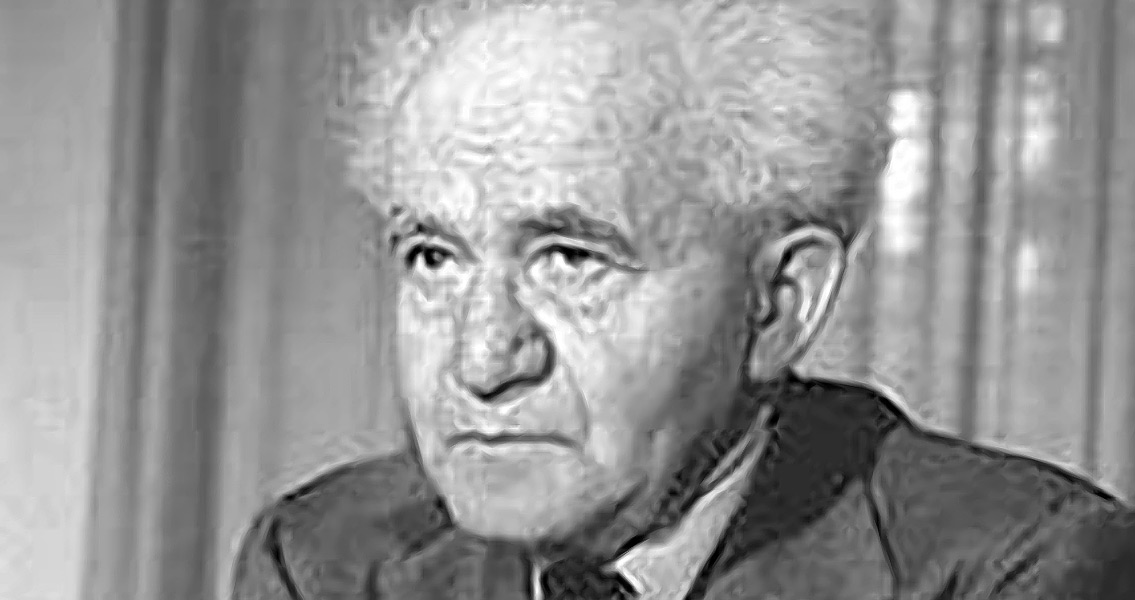<![CDATA[The 14th May marks the anniversary of the Proclamation of the State of Israel. As the declaration of 1948 was made, the rumble of guns could be heard outside Tel Aviv from fighting between Arabs and Jews which had started that morning. The proclamation was made during an afternoon ceremony at the Tel Aviv Art Museum, by the Jewish Agency Chairman David Ben-Gurion. The declaration laid clear the intentions of the first Jewish State established in 2,000 years: "The State of Israel will be open for Jewish immigration and for the Ingathering of the Exiles; it will foster the development of the country for the benefit of all its inhabitants; it will be based on freedom, justice and peace as envisaged by the prophets of Israel; it will ensure complete equality of social and political rights to all its inhabitants irrespective of religion, race or sex; it will guarantee freedom of religion, conscience, language, education and culture; it will safeguard the Holy Places of all religions; and it will be faithful to the principles of the Charter of the United Nations." Ben-Gurion would go on to be elected the first Prime Minister of Israel, after his Mapai (Labour) party won the majority of seats in the first national election in February, 1949. Central towards the formation of the campaign to create a modern Israel was the Zionism Movement of the late nineteenth century. Founded in response to the anti-Semitic persecution rife in the Russian Empire, which had led to a series of horrific pogroms, Jews started to campaign for the creation of a Jewish Territorial state as the only way to protect themselves from persecution. Jewish-Austrian journalist Theodor Herzl convened the First Zionist Congress in Switzerland in 1897. Featuring some 200 delegates, the Congress declared its aspiration to "create a publicly guaranteed homeland for the Jewish people." Palestine, then a territory within the Ottoman Empire, was selected as the best place to establish the state, having been the original home of the Jews some 2,000 years previously. Petitions to the Ottoman Empire had failed but following the Russian Revolution of 1905, East European and Russian Jews began to immigrate to Palestine, settling in the area and using Hebrew as their first language. Following the Ottoman Empire's collapse in the First World War, Palestine came under a British mandate which included the text of the 'Balfour Declaration', confirming British support for the eventual establishment of a Jewish State in Palestine. Palestine remained under British mandate through the 1920s and 1930s. In 1929, tensions between Arabs and Jews led to conflict, and Britain attempted to restrict Jewish immigration to Palestine. The outbreak of the Second World War worsened the situation dramatically. Jews began entering Palestine illegally to escape the spread of the Holocaust. Britain's attempts to prevent Jews fleeing to Palestine and failure to ensure the establishment of a Jewish state led to a violent backlash, with radical Zionists carrying out acts of terrorism against the British presence. Unable to find a solution to the situation in Palestine, and with the issue of a Jewish State having become increasingly vital as details of the horrors of the Holocaust were revealed, Britain referred the problem to the United Nations. In 1947, the UN voted to partition Palestine, while confirming that British forces would withdraw following the expiration of the mandate in May, 1948. The terms of the UN partition gave the Israelis half of the territory of Palestine. Following the withdrawal of British military forces, fighting quickly broke out between Arabs and Jews, providing a portent of the conflicts which would soon come to dominate the region. The British mandate officially ended at midnight on the 14th, and the following day forces from Egypt, Transjordan, Syria, Lebanon and Iraq invaded Israel, marking the start of the first Arab-Israeli War. A massively controversial issue that is still very much a cause of conflict, the relationship between Israel and Palestine is one that polarises opinion. What is clear, is that the conflicts in the region have existed from the moment of Israel's proclamation, and even before. ]]>
The Declaration of the State of Israel
